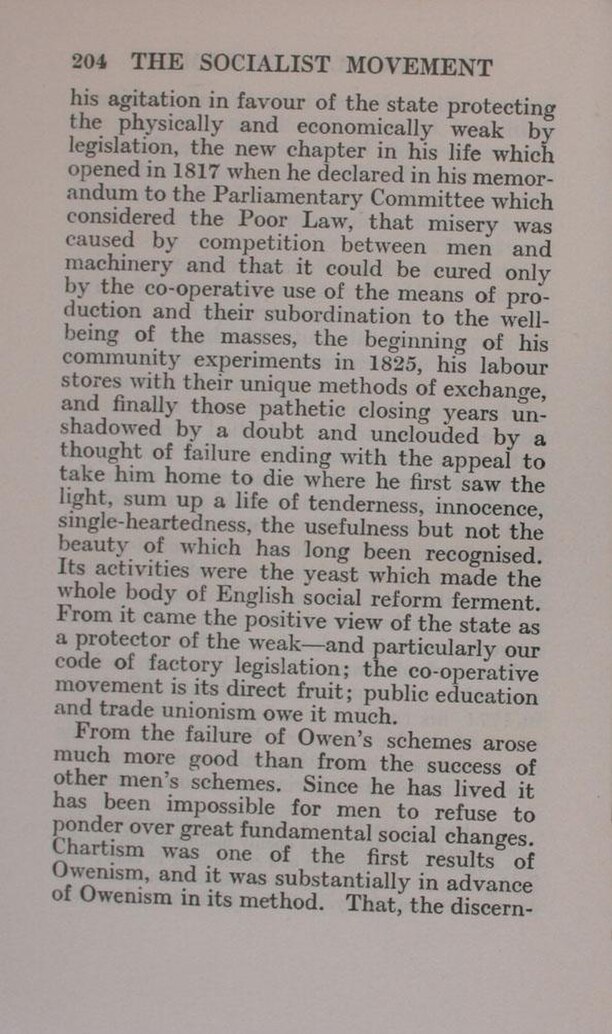his agitation in favour of the state protecting the physically and economically weak by legislation, the new chapter in his life which opened in 1817 when he declared in his memorandum to the Parliamentary Committee which considered the Poor Law, that misery was caused by competition between men and machinery and that it could be cured only by the co-operative use of the means of production and their subordination to the well-being of the masses, the beginning of his community experiments in 1825, his labour stores with their unique methods of exchange, and finally those pathetic closing years unshadowed by a doubt and unclouded by a thought of failure ending with the appeal to take him home to die where he first saw the light, sum up a life of tenderness, innocence, single-heartedness, the usefulness but not the beauty of which has long been recognised. Its activities were the yeast which made the whole body of English social reform ferment. From it came the positive view of the state as a protector of the weak—and particularly our code of factory legislation; the co-operative movement is its direct fruit; public education and trade unionism owe it much.
From the failure of Owen's schemes arose much more good than from the success of other men's schemes. Since he has lived it has been impossible for men to refuse to ponder over great fundamental social changes. Chartism was one of the first results of Owenism, and it was substantially in advance of Owenism in its method. That, the discern-
